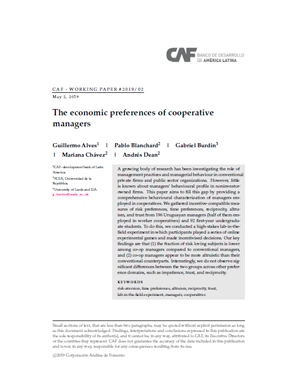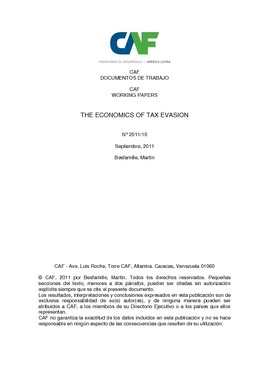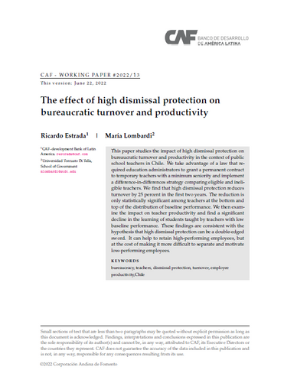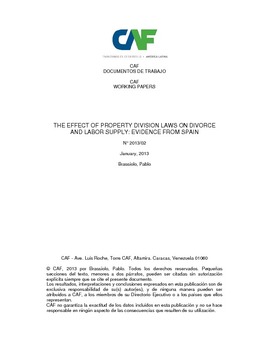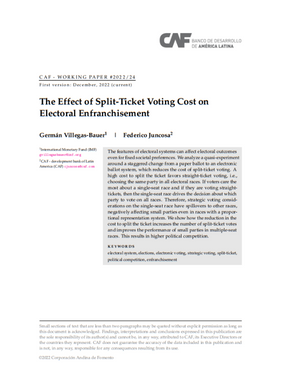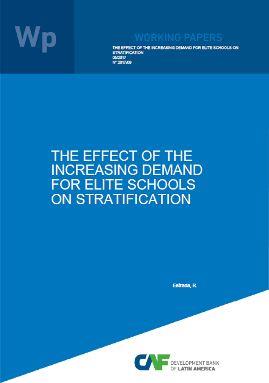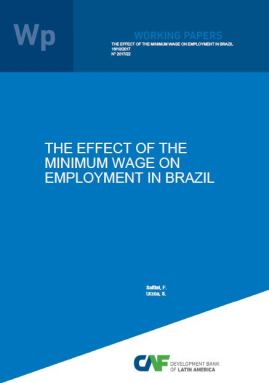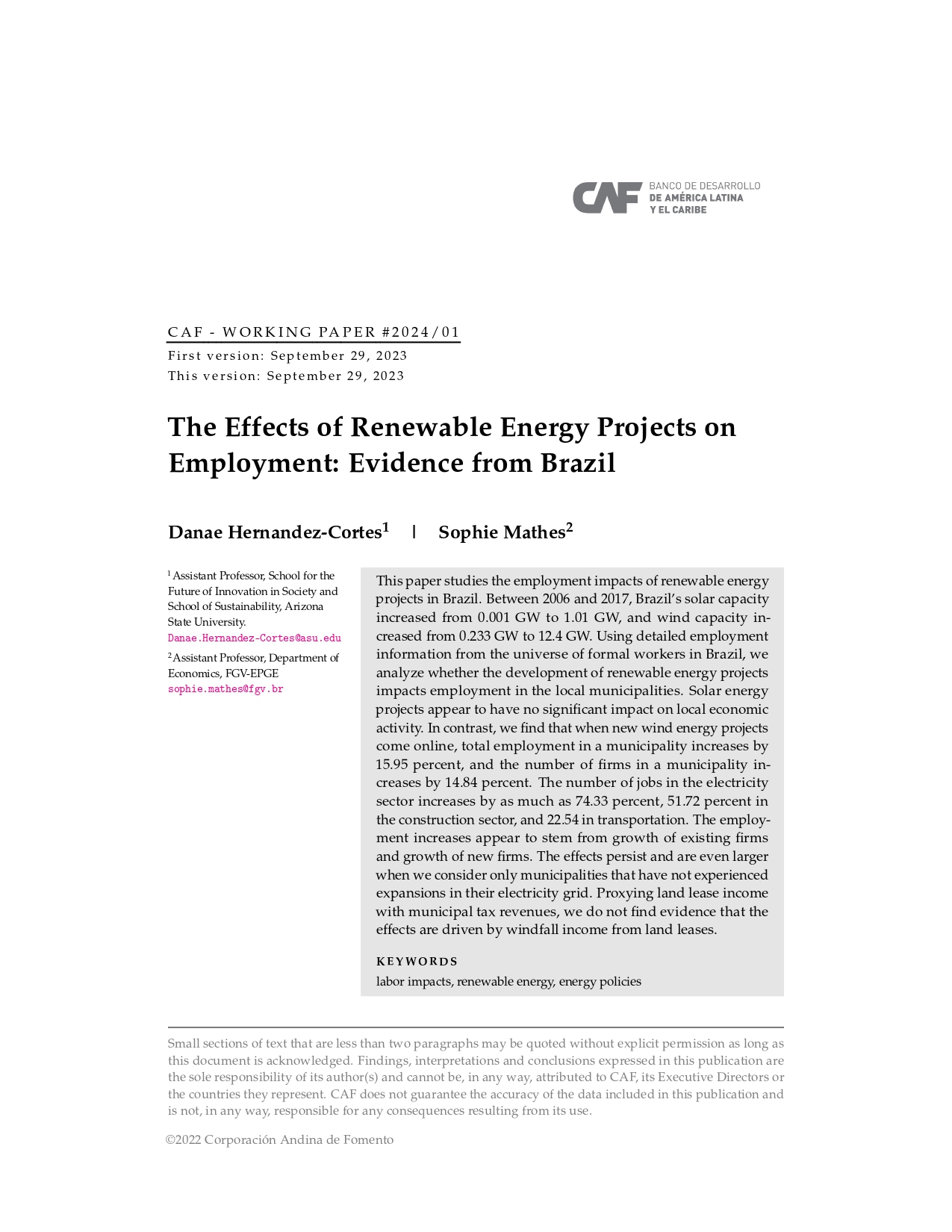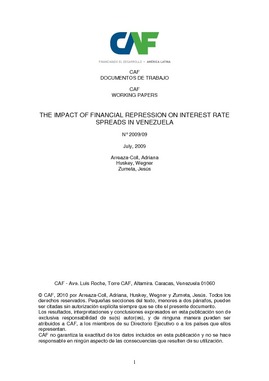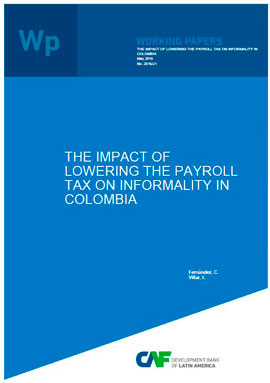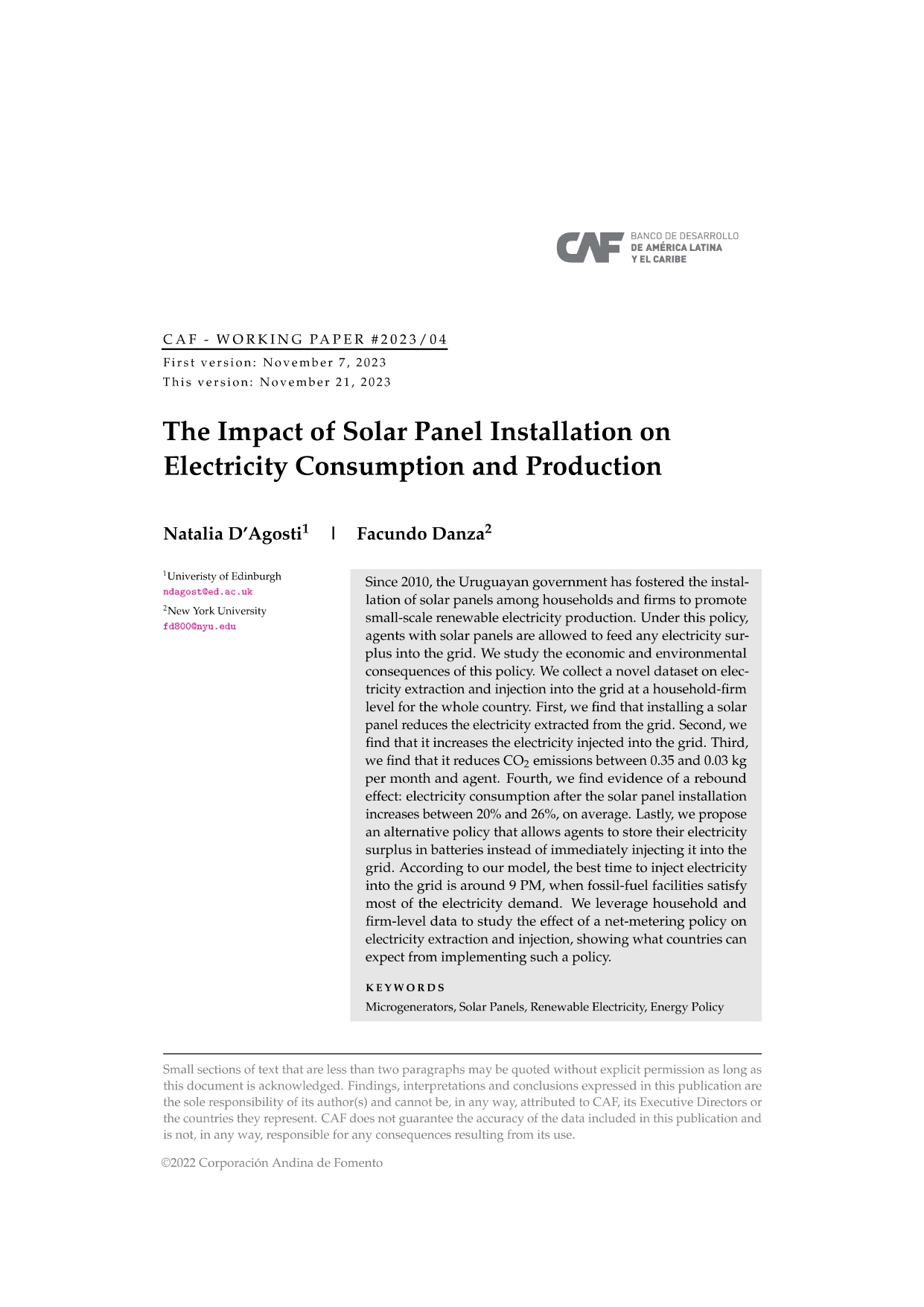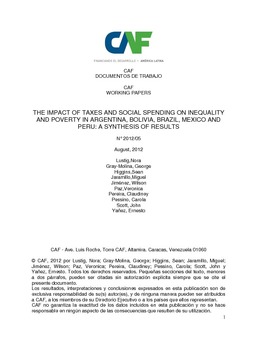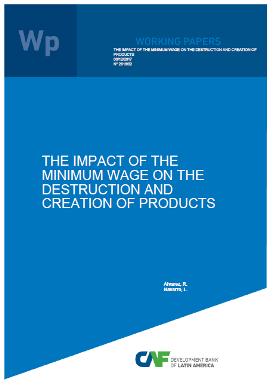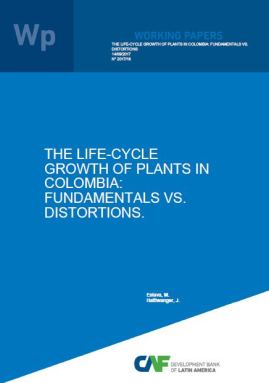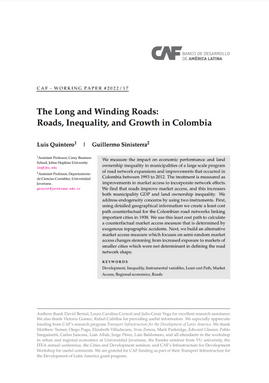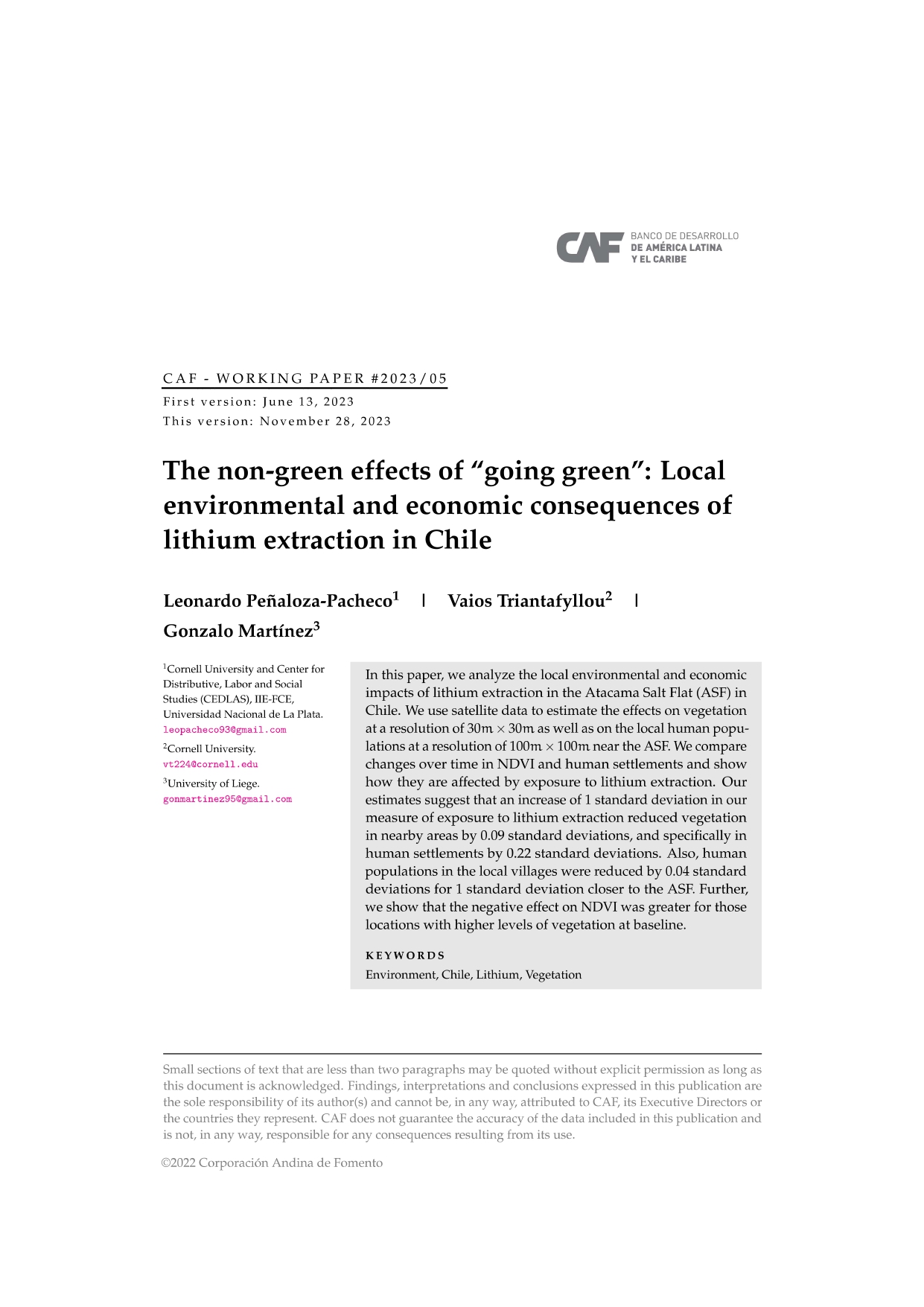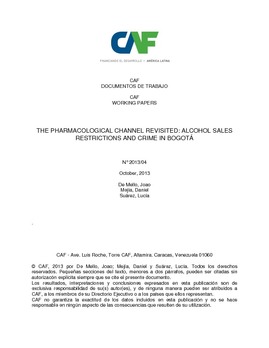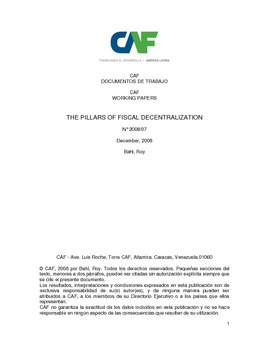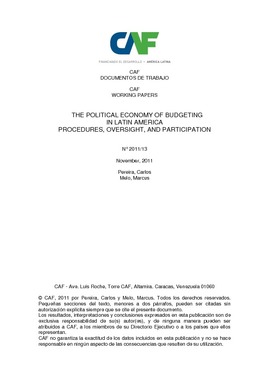Listar 06. Documentos de trabajo por título
Mostrando ítems 388-407 de 447
-
The Economic Preferences of Cooperative Managers
(CAF; Caracas, 2019-05-02)A growing body of research has been investigating the role of management practices and managerial behaviour in conventional private firms and public sector organizations. However, little is known about managers’ behavioural ... -
The economics of tax evasion
(CAF; Caracas, 2011)This paper begins by reviewing the problem of tax evasion measurement. Based on available data, I conclude that this problem is far from being negligible, both for developed and developing countries. I also present in more ... -
The effect of high dismissal protection on bureaucratic turnover and productivity
(CAF; Caracas, 2022-06-22)This paper studies the impact of high dismissal protection on bureaucratic turnover and productivity in the context of public school teachers in Chile. We take advantage of a law that required education administrators ... -
The effect of property division laws on divorce and labor supply: evidence from Spain
(CAF; Caracas, 2013)I study how the relative bargaining position of spouses affects the incidence of marital dissolution and the labor supply decision of intact couples. I identify exogenous variation in bargaining position within the household ... -
The Effect of Split-Ticket Voting Cost on Electoral Enfranchisement
(2022-12)The features of electoral systems can affect electoral outcomes even for fixed societal preferences. We analyze a quasi-experiment around a staggered change from a paper ballot to an electronic ballot system, which reduces ... -
The Effect of the Increasing Demand for Elite Schools on Stratification
(CAF; Buenos Aires, 2017-05-31)I use detailed applications data to document a case in which, contrary to prevailing concerns, increasing school stratification by ability co-existed with stable stratification by family income: Mexico City public high ... -
The Effect of the Minimum Wage on Employment in Brazil
(CAF; Buenos Aires, 2017-10-16)During the economic boom of the early 2000s, most Latin American countries increased their minimum wages. In Brazil, the real minimum wage increased by upwards of 60 percent from 2003 through 2012. In this paper, we take ... -
The Effects of Renewable Energy Projects on Employment: Evidence from Brazil
(2024-01-12)This paper studies the employment impacts of renewable energy projects in Brazil. Between 2006 and 2017, Brazil’s solar capacity increased from 0.001 GW to 1.01 GW, and wind capacity increased from 0.233 GW to 12.4 GW. ... -
The GovTech Index 2020 Unlocking the Potential of GovTech Ecosystems in Latin America, Spain and Portugal
(CAF, Oxford Insights; Caracas, 2020-06-02)The emergence of GovTech startups is probably one of the most promising trends in the public innovation landscape in recent years. GovTech ecosystems are made of a new brand of tech-based, data-driven startups with a public ... -
The impact of financial repression on interest rate spreads in Venezuela
(CAF; Caracas, 2009)This paper empirically examines the effect of financial repression on interest rates spreads in Venezuela. In order to have a measure of financial repression, we built an index that captures the opportunity cost of regulatory ... -
The impact of lowering the payroll tax on informality in Colombia
(Caracas, 2016)The Colombian government recently reformed the tax law by reducing payroll contributions from 29.5% to 16% and substituting them with a profit tax. The law was passed in December 2012, and two years later the informality ... -
The Impact of Solar Panel Installation on Electricity Consumption and Production
(2023-11)Since 2010, the Uruguayan government has fostered the instal lation of solar panels among households and firms to promotesmall-scale renewable electricity production. Under this policy, agents with solar panels are allowed ... -
The impact of taxes and social spending on inequality and poverty in Argentina, Bolivia, Brazil, Mexico and Peru: a synthesis of results
(CAF; Caracas, 2012)We apply a standard tax and benefit incidence analysis to estimate the impact on inequality and poverty of direct taxes, indirect taxes and subsidies, and social spending (cash and food transfers and in-kind transfers in ... -
The impact of the minimum wage on the destruction and creation of products
(CAF; Santiago de Chile, 2017-12-06)We study the impact of changes in the legal minimum wage on the creation and destruction of products at the firm level. This can be a relevant way for increasing firm productivity and for explaining why the raises in the ... -
The Life-cycle Growth of Plants in Colombia: Fundamentals vs. Distortions
(CAF; Buenos Aires, 2017-10-05)We take advantage of rich microdata on Colombian manufacturing establishments to decompose growth over an establishment’s life cycle into that attributable to fundamental sources of idiosyncratic growth ̶ physical productivity, ... -
The Long and Winding Roads: Roads, Inequality, and Growth in Colombia
(CAF; Caracas, 2022-11-01)We measure the impact on economic performance and land ownership inequality in municipalities of a large scale program of road network expansions and improvements that occurred in Colombia between 1993 to 2012. The treatment ... -
The non-green effects of “going green”: Local environmental and economic consequences of lithium extraction in Chile
(CAF- banco de desarrollo de América Latina y el Caribe; Distrito Capital, 2023-11-28)In this paper, we analyze the local environmental and economic impacts of lithium extraction in the Atacama Salt Flat (ASF) inChile. We use satellite data to estimate the effects on vegetation at a resolution of 30m × 30m ... -
The pharmacological channel revisited: alcohol sales restrictions and crime in Bogotá
(CAF; Caracas, 2013)Our goal in this paper is twofold: First, evaluate the impact on crime of the restriction of latenight alcohol sales in Bogotá; and second, quantify the causal effect of problematic alcohol consumption on different crime ... -
The pillars of fiscal decentralization
(CAF; Caracas, 2008)Fiscal decentralization can de be defined as the process of transferring budgetary authority from central government to elected subnational governments in order to grant them power to make decisions regarding taxes and ... -
The political economy of budgeting in Latin America procedures, oversight, and participation
(CAF; Caracas, 2011)This report provides a selective overview of issues pertaining to the budgetary process and a mapping out of budgetary institutions in Latin America and assesses to what extent budgets play the role societies expect from ...


